Skip to Main Content
Policy Compliance
- What kinds of writings does this apply to?
Only scholarly articles (in peer-reviewed scholarly journals and/or conference proceedings). This should be the author's final version of the article as a result of the peer-review process, i.e. prior to publisher's copy-editing or formatting.
ScholarSpace welcomes scholarly works other than articles (e.g. books, popular/commissioned articles, fiction and poetry, encyclopedia entries, ephemeral writings, lecture notes or videos, etc.), but the policy covers ONLY articles.
- Does the policy apply to articles I've already written?
Only if these papers were completed after Fall 2012.
- Does the policy apply to co-authored papers?
Yes. Each joint author holds copyright and individually has the authority to grant UHM a non-exclusive license.
- Why is this an automatic/blanket license?
Individual faculty benefit from a blanket policy because it makes it possible for UHM to work with publishers on behalf of the faculty, to simplify procedures, and broaden access. Without a policy covering all of our authors, we could not take full advantage of the benefit of unified action.
- Is UHM taking the rights to my writing?
No. The policy grants specific nonexclusive permissions to UHM, but you still retain ownership and complete copyright, which means you can exercise said copyright in any way you see fit (including transferring them to a publisher if desired). However, UHM still retains the license and right to distribute the article through our repository, ScholarSpace.
- What if a journal publisher refuses to publish my article because of this prior license?
It is your responsibility to communicate this policy to your publisher and add an addendum to any copyright license or agreement. (UHM provides an author addendum for this purpose.)
That said, you have a number of options: 1) Negotiate acceptance of UHM's non-exclusive license in order to publish your article; 2) Seek a different publisher; 3) Consult with the University Office of Legal Affairs and General Counsel about taking steps to address the publisher's specific concerns; or 4) Obtain a waiver for the article under the policy.
- Can others distribute the content of my articles, e.g. course packets?
Others may distribute the content provided that the articles are not sold for profit.
- Should I include my articles in ScholarSpace even if the work is not covered by the UHM OA Policy?
Anything authored by faculty before Fall 2012 is not subject to the policy. You may submit these works if you so choose and if they comply with publisher agreements about reuse of your own work.
- What is an author addendum and how does it apply to my works covered by the UHM OA policy?
An author addendum is a proposed modification of a publishing contract. If accepted by the publisher, it modifies the contract, for example, in order to take proper account of the UHM open-access license or to allow authors to retain rights that would otherwise have been transferred to the publisher.
- UHM Author Addendum Template
Opting Out (Waivers)
- How do I opt out?
Fill out a web form at ScholarSpace OR send an email or other written notice to sspace@hawaii.edu with the following:
- Name of UHM author
- Title of article (expected or working title)
- Journal title you expect to publish in
- Reason you are opting out
- Can I get an embargo period before depositing in ScholarSpace?
Yes. Follow the same steps for filling out a waiver web form at ScholarSpace:
1) Go to https://scholarspace.manoa.hawaii.edu/openaccess
2) Select "I need a waiver."
3) Select "
- What happens if I do not opt out, but assign exclusive rights to a publisher anyway?
UHM's license would still have force because it would have been granted through the UHM OA Policy prior to the signing of the publisher contract. If the publisher expresses concern, you have several options:
- What if my co-author disagrees on opting out?
Each co-author in a jointly-written article owns the copyright. Under U.S. copyright law, any co-author has the right to grant a nonexclusive permission to others. It would be up to the co-author to decide whether to opt out of the policy for a given article to accommodate a co-author.
- Can I retract an article later if a publisher requires me to do so?
It would be possible to remove a paper, particularly in cases involving a legal dispute. Please consult with the University's Office of Legal Affairs and General Counsel.
Other
- Why isn't student work covered by the policy?
UHM already receives a license to Ph.D. dissertations. These are made openly available worldwide through ScholarSpace. Any student articles co-authored by faculty will be subject to the UHM OA Policy.
- Are images covered by the policy?
To the extent that images are contained in faculty scholarly articles, those images are covered by the policy only.
- Is this policy related to the NIH Public Access Policy?
The NIH Public Access Policy applies only to NIH-funded research and cannot be waived. This requires authors to deposit their articles in PubMedCentral, another open access repository. These articles must be made accessible within 12 months of publication. Your article could be subject to both this policy and UHM OA Policy if it is peer-reviewed. For more information on the NIH addendum and compliance with that policy, please see our page on complying with the NIH policy.
- Can my articles be used as the basis of derivative works by other authors?
Yes, but only with permission from the author and in order to advance the aims of the policy. Derivative works will be required to include a citation, hyperlink, or similar reference to the original document and will appropriately identify the nature of the revision (e.g. "abridged from...")

